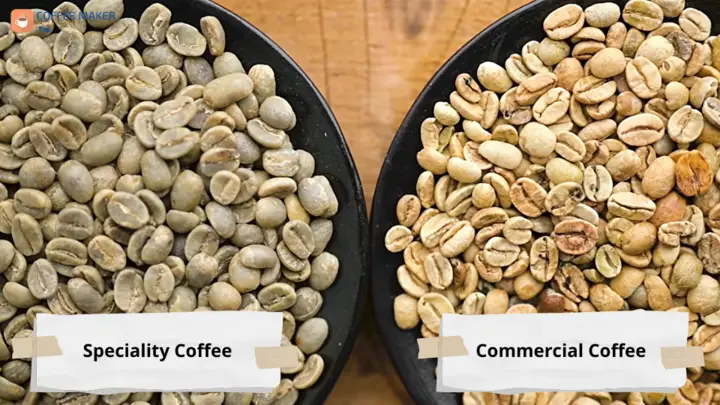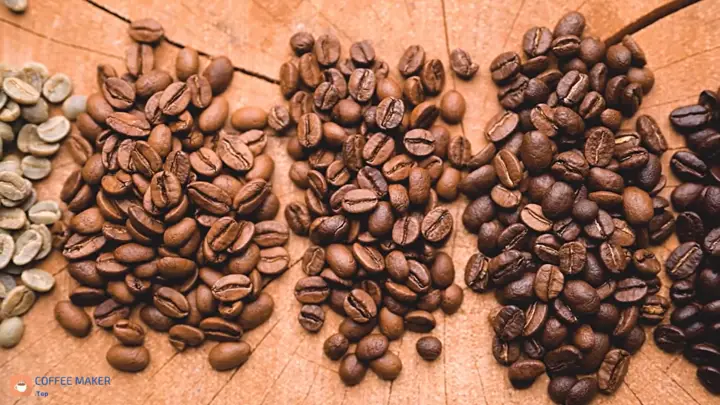We have all had a cup of coffee and felt bitterness and astringency that overshadows everything else. Bitterness will always be present in the cup because it is a characteristic of coffee due to its chemical composition.
But the bitterness of a good coffee should never be the taste that dominates the cup, so we must find a balance between all the flavours. Good coffee should have a natural sweetness and a pleasant acidity that complements the bitterness, but in such a subtle way that it is barely noticeable.
I would never describe a good coffee as bitter. Knowing how to identify where the bitterness we feel comes from is key to being able to solve it and have a more flavoursome coffee.
Influence of bean type and care of the coffee plant on bitterness
Commercial coffee is one where quantity is prioritised over quality and productivity. In other words, obtaining a greater quantity of coffee at a lower price. This coffee is used to supply large commercial chains and supermarkets.
Robusta coffee beans are used in commercial coffees with very bitter flavours, and Arabica “discard coffees”. The latter, although of better quality, have defects and unpleasant flavours.

It is always advisable to buy speciality coffees, where a better plant is used, which requires more care. Higher quality controls are carried out with this coffee to obtain the best possible coffee, where bitterness is not the predominant taste.
Influence of roasting on coffee bitterness
After buying good quality coffee, bitterness can still be found due to the type of roasting. The more the coffee is roasted, the more the bitterness increases proportionally. So, in a dark roast, we will notice a very predominant bitterness, with charcoal or ash flavours.

For example, when we toast the bread lightly, it has a characteristic taste, colour and smell, with a little bit of that caramelisation from the Maillard reaction that happens when you cook something. If we continue toasting the bread, its colour darkens, and its bitterness increases. When burnt, it has a rather unpleasant smoky, ashy taste.
Something similar happens with coffee, which doesn’t exactly burn, but it does develop this type of flavour. So, if you want to avoid this flavour, I recommend choosing coffees with light or medium roasts.
If you choose these coffees with lighter roasts, you will feel much more of the coffee’s flavours; I am referring to flavours such as chocolate, dried fruits, fruity, floral, spicy, etc. You will be able to feel the flavours that come from the origin and that this type of roasting enhances without overshadowing them with bitterness.
Of course, it is not enough to roast light; the roaster must know what he is doing and make decisions according to the coffee he is roasting to develop a correct profile. Some mistakes can be made during roasting that can add a bitter or smoky taste.
Influence of coffee preparation on bitterness
Now that we have a good coffee bean and a good roast, we need to look at the preparation’s influence on the coffee’s final bitterness. When we drink a coffee from a good bean with a light roast, when we feel a bitter taste, it is usually due to over-extraction.
And when does this happen? How do we usually over-extract coffee? Mainly for four reasons:
- Grinding the beans too fine for the coffee machine you are using.
- Using water at too high a temperature.
- Leaving the coffee in the water for too long.
- Using too much water for too little coffee. We call this proportion a ratio, and in this case, we would be using a very high ratio.

This does not usually happen with a medium roast coffee and even more so with dark roast coffees. On the other hand, if you have a light roast coffee, it is very difficult to get a bitter taste due to over-extraction.
Because of this short roasting period and because it needs more extraction than medium or high roasts, we need to grind the coffee beans finer. We can also use boiling water directly, and we can use a higher ratio, all to obtain more solubility*.
*That the coffee solids, the flavours, dissolve faster in hot water.
We commonly see a slightly more sour taste with this light roasting that can be mistaken for bitterness. But this sour taste is telling us that the coffee is under-extracted and lacks extraction.
That is why we must take these measures with this type of coffee. We always recommend, for example, using water directly at boiling point.
Related: How long does brewed coffee last in good condition?
The type of grinder you use to grind your coffee affects the bitterness
The coffee grinder used will also contribute greatly to the bitter taste found in the beverage. It is key to have a grinder that produces a good, even grind so that the coffee is extracted correctly.
Cheap, poor-quality grinders produce fine grinds that will be extracted much faster than the rest of the coffee. Therefore, we will again have this over-extraction and an increase in the bitterness of our beverage.
Darker roast coffees suffer much more from this problem, as they are more porous and break easily into small pieces.
Cleaning the coffee machine affects coffee bitterness
If you have bought a good quality coffee with a light roast and do not over-extract during preparation but still feel a bitter taste, you need to look at the coffee machine and its cleanliness.
In espresso machines, this is most common. A good cleaning of the coffee machine is very important for good coffee; otherwise, all the above steps are useless.
